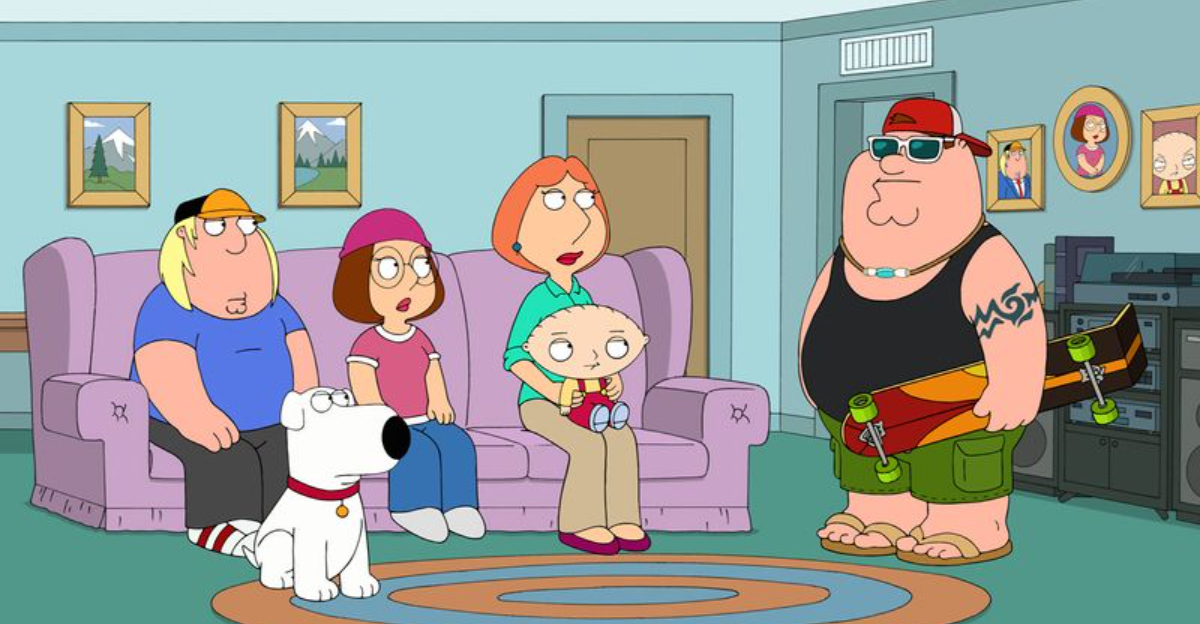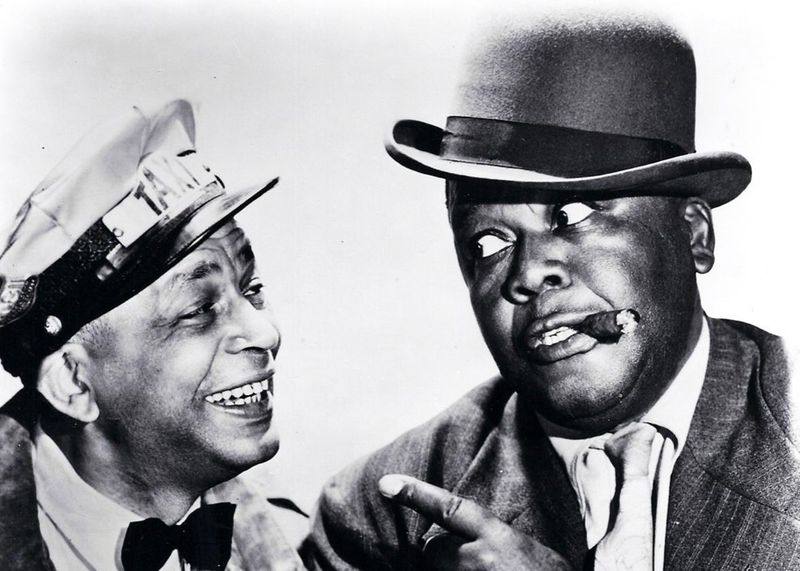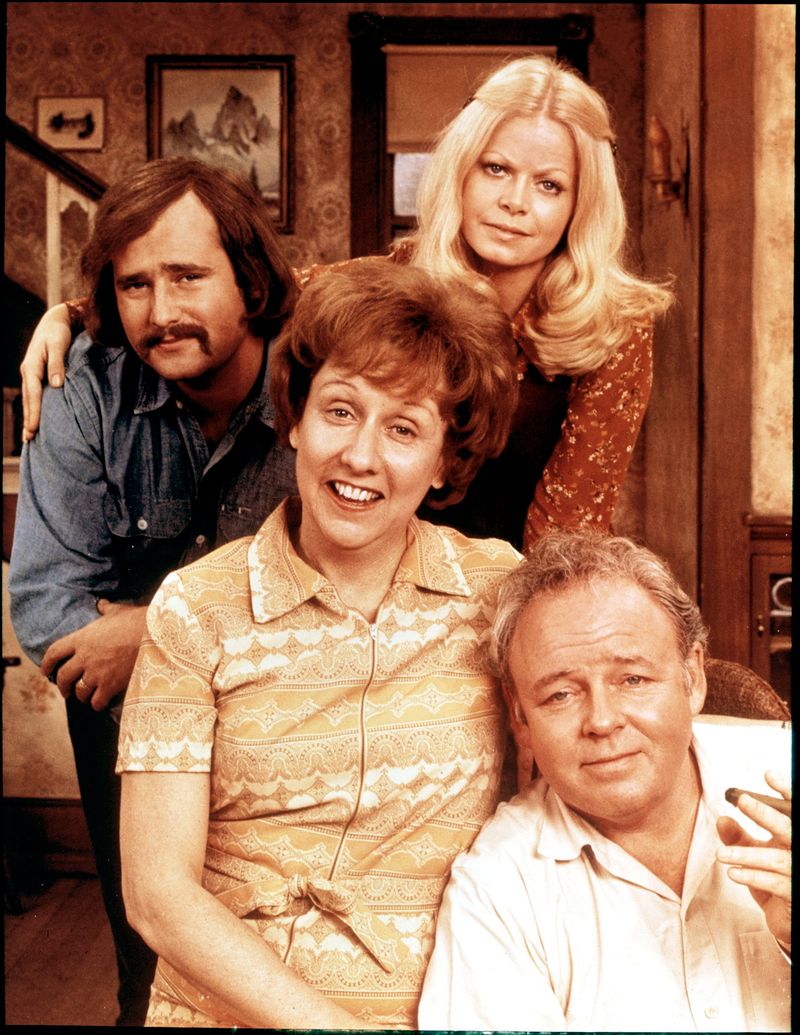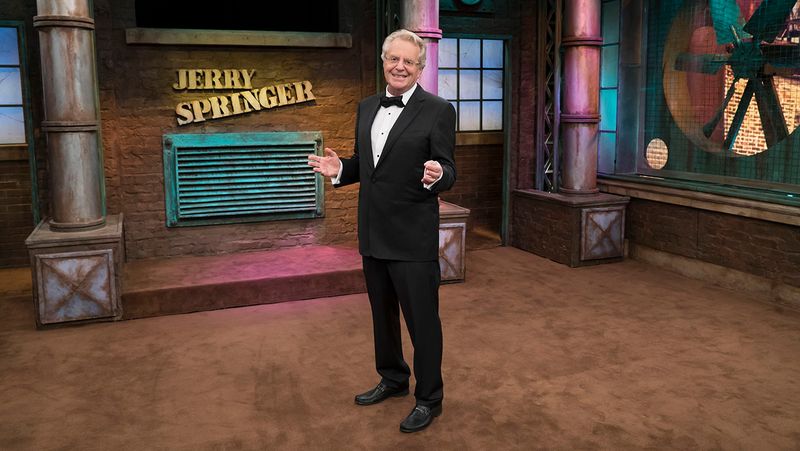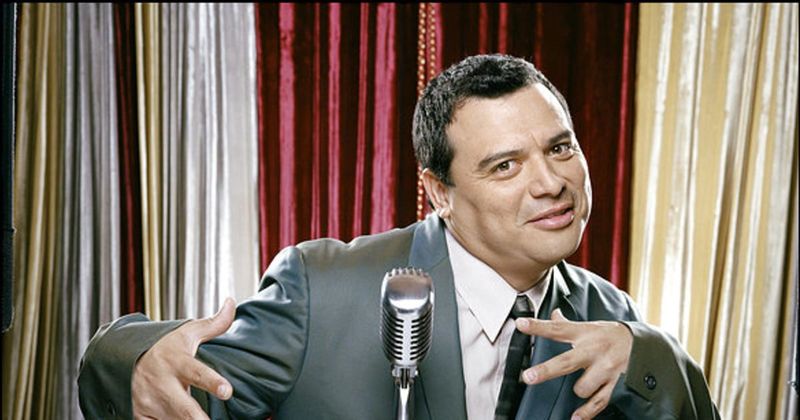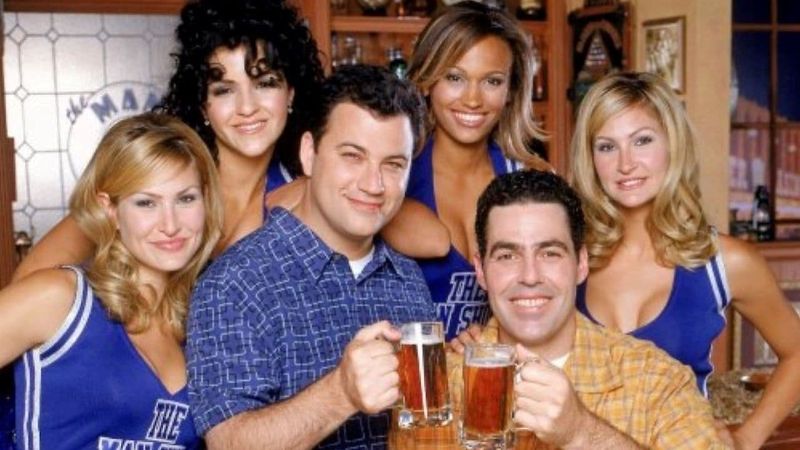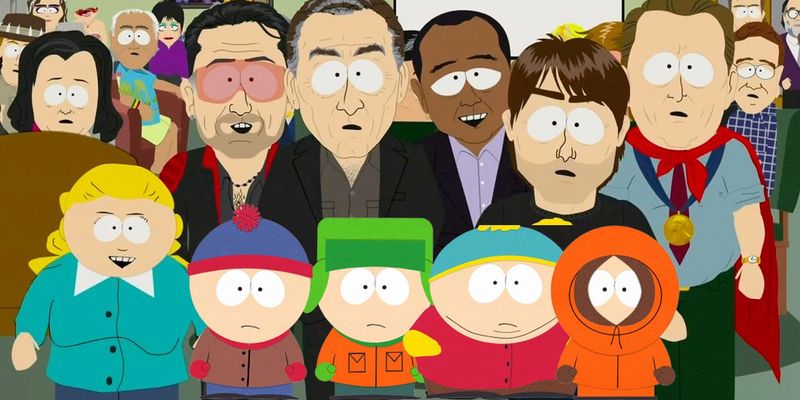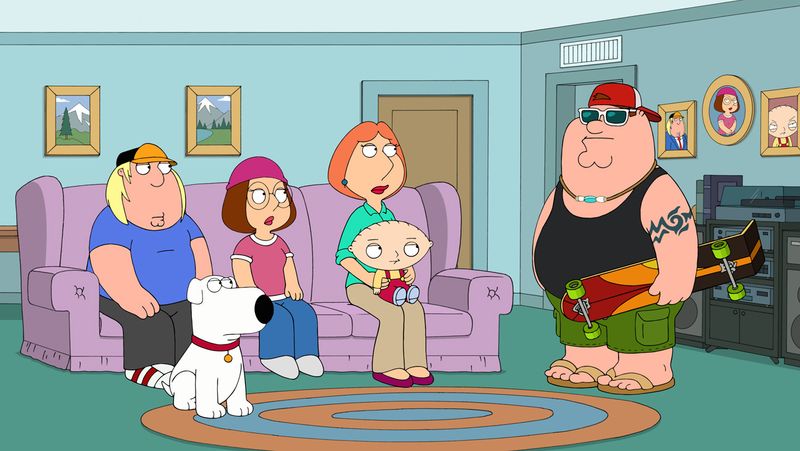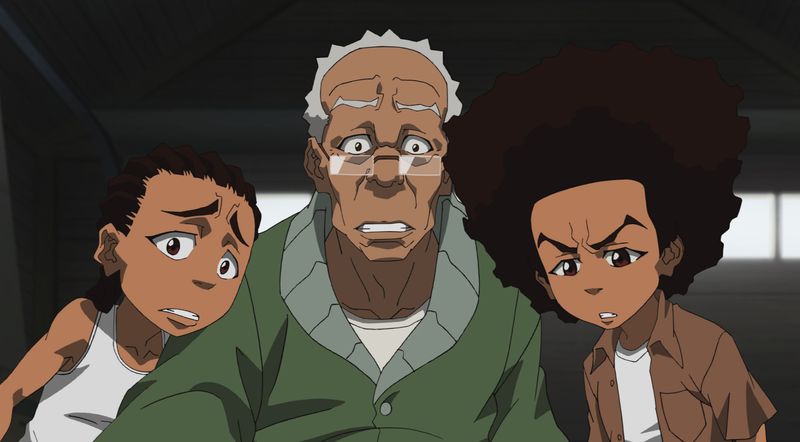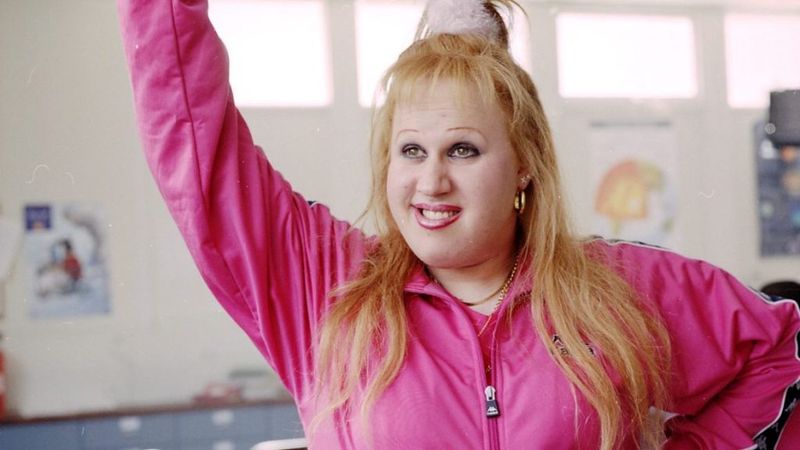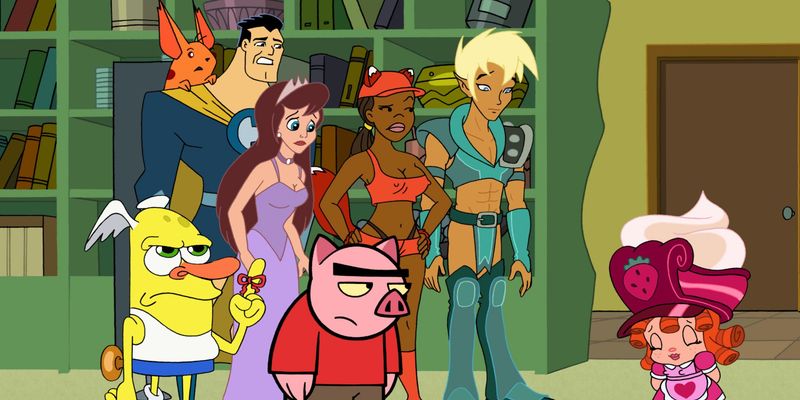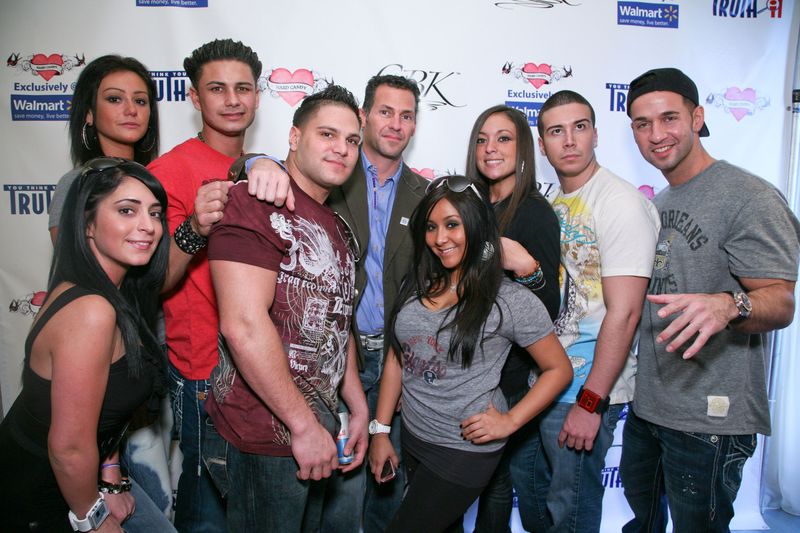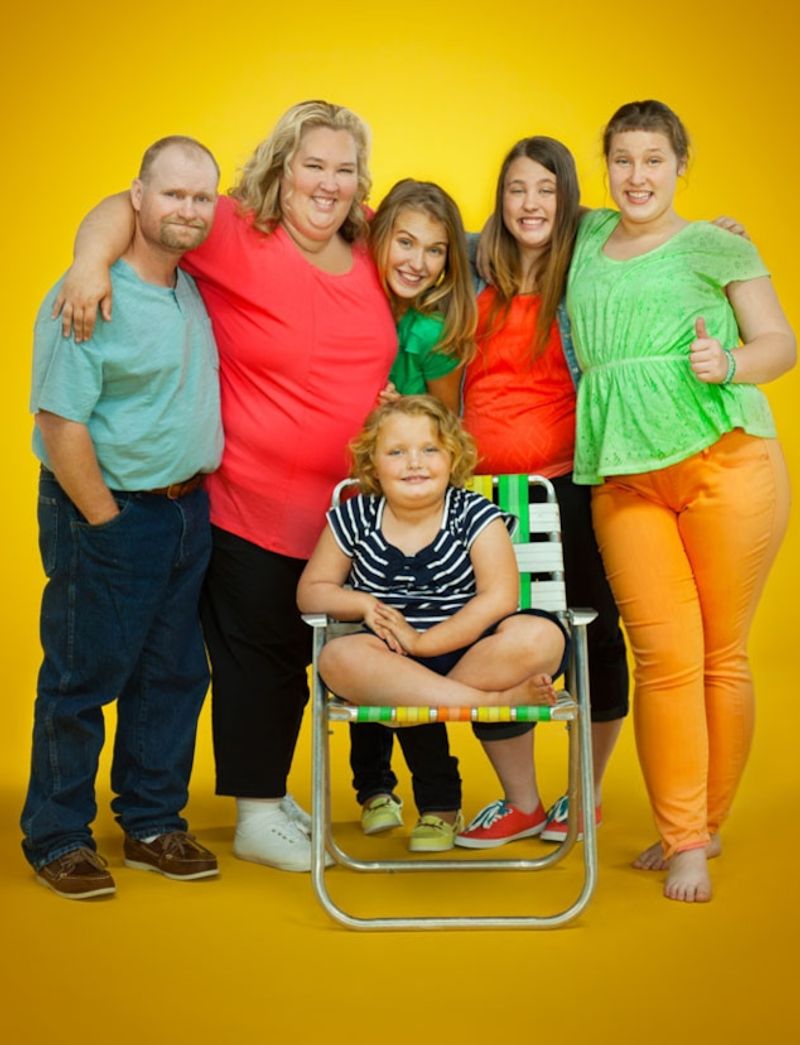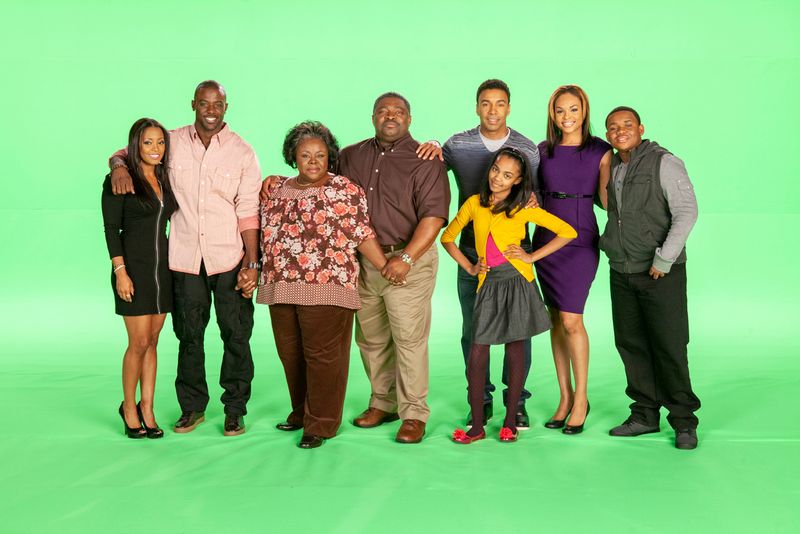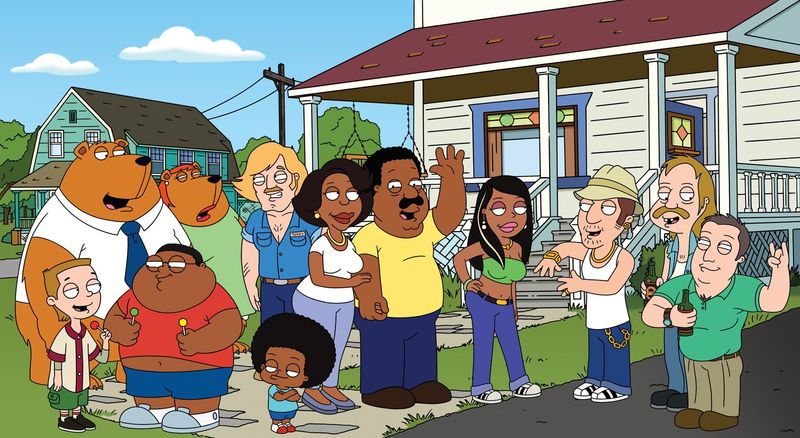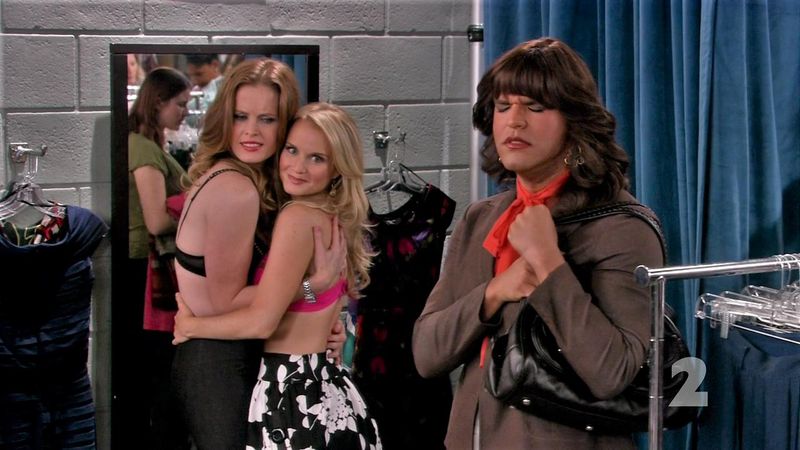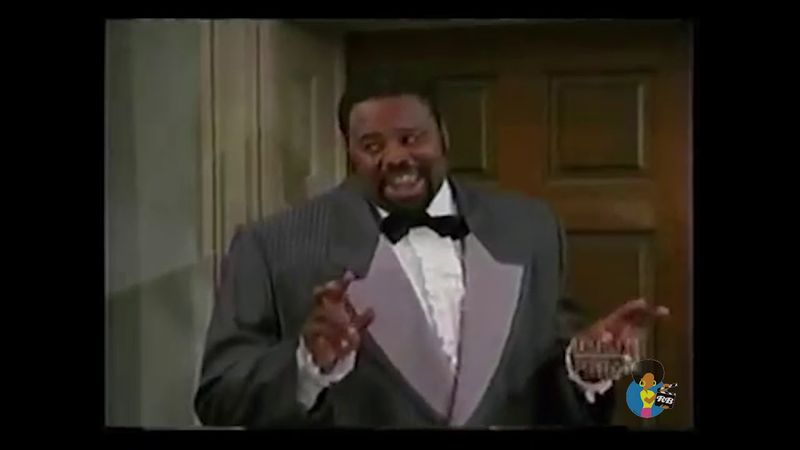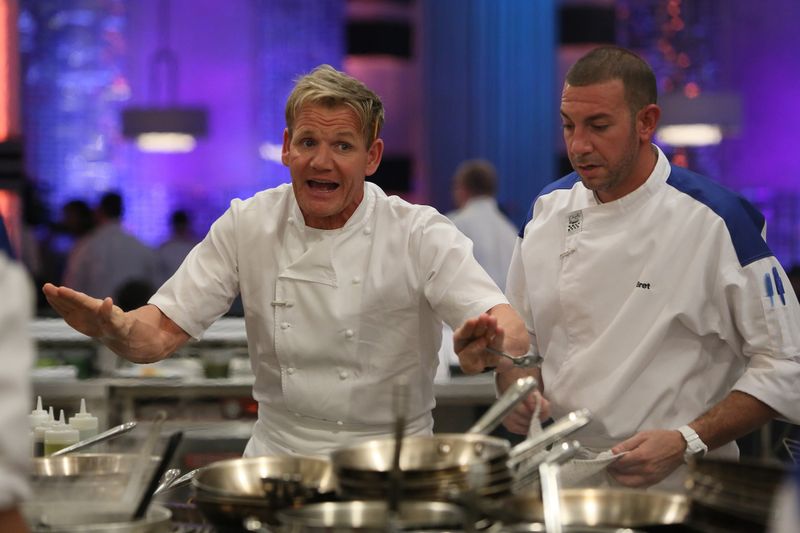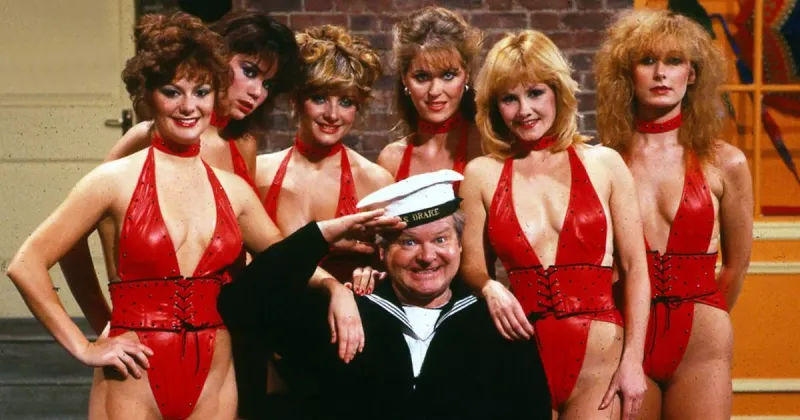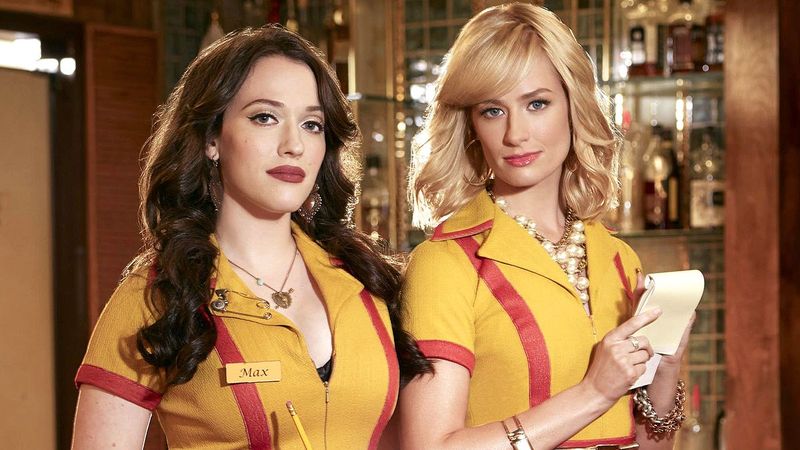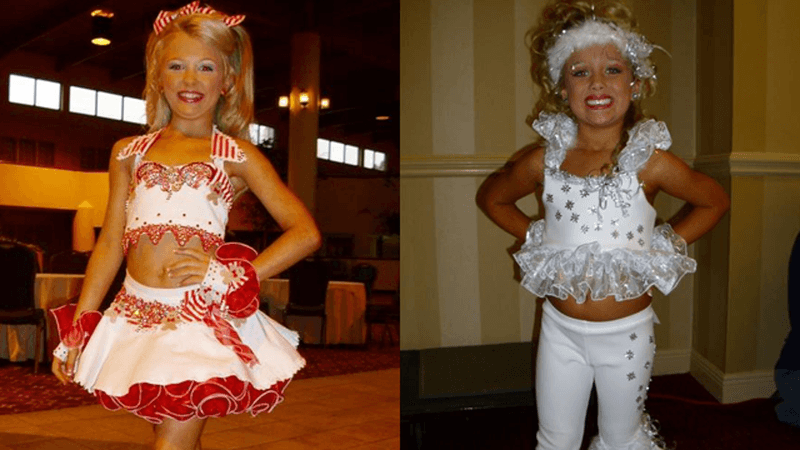Television has a long history of pushing boundaries, sometimes crossing the line into offensive territory. From racial stereotypes to shock humor, certain shows have stirred controversy and backlash over the years. Here’s a look at 20 of the most offensive shows in TV history, exploring the reasons behind their notoriety and the impact they’ve had on audiences and culture.
1. Amos ‘n’ Andy (1951–1953)
The CBS sitcom ‘Amos ‘n’ Andy’ began with white actors using blackface, a practice that was already controversial. Even after switching to an all-Black cast, the show continued to perpetuate harmful racial stereotypes. The NAACP’s protests highlighted the damaging impact the show had on African-American representation. As a result, it was ultimately pulled from syndication. This early television program serves as a stark reminder of the racial insensitivity prevalent during its time. The offensive nature of ‘Amos ‘n’ Andy’ remains a significant topic of discussion in the history of television.
2. All in the Family (1971–1979)
Archie Bunker, the central character of ‘All in the Family’, was known for his bigoted views. While the show broke ground by addressing social issues, its portrayal of racism, sexism, and homophobia sparked debate. Some episodes are considered too politically incorrect for today’s audiences and have been removed from syndication. Despite its offensive elements, ‘All in the Family’ played a role in starting conversations about prejudice. Yet, its legacy is mixed, with some seeing it as perpetuating stereotypes rather than challenging them.
3. The Jerry Springer Show (1991–2018)
‘The Jerry Springer Show’ thrived on chaos and sensationalism, often featuring explosive confrontations among its guests. Known for its outrageous topics and physical altercations, the show was dubbed a “public freak show” by critics. It capitalized on human misery and scandal to attract viewers. Despite—or perhaps because of—its controversial nature, it gained a massive audience. However, the exploitation of personal drama for entertainment left a lasting negative impact on the talk show genre. Its legacy remains contentious among viewers and critics alike.
4. Mind of Mencia (2005–2008)
Carlos Mencia’s ‘Mind of Mencia’ was notorious for its offensive humor, which often relied on racial and homophobic stereotypes. Accusations of joke theft further tainted its reputation. Fellow comedians criticized Mencia for crossing comedic lines and lacking originality. Despite its initial popularity, the show’s reliance on shock value rather than genuine humor led to its decline. It serves as an example of how offensive content can overshadow comedic talent. ‘Mind of Mencia’ remains a cautionary tale within the world of comedy.
5. The Man Show (1999–2004)
‘The Man Show’ epitomized early 2000s bro culture, filled with beer chugging and sexist sketches. Hosted by Adam Carolla and Jimmy Kimmel, it featured segments like jumping trampoline girls, appealing to a male-centric audience. The show’s reliance on crude humor and objectification of women drew criticism over time. While it captured a specific moment in pop culture, it now stands as a relic of outdated attitudes. The controversy surrounding ‘The Man Show’ underscores the shifting perceptions of gender and humor.
6. South Park (1997–Present)
‘South Park’ is infamous for its boundary-pushing satire, often targeting religion, politics, and celebrities. Its irreverent approach has both fans and detractors, with episodes sparking protests and bans. Despite the constant controversy, creators Trey Parker and Matt Stone continue to push societal buttons. The show’s ability to offend and entertain in equal measure has cemented its place in pop culture. However, its legacy is complex, as it raises questions about the limits of free speech and satire.
7. Family Guy (1999–Present)
Known for its cutaway gags and irreverent humor, ‘Family Guy’ often crosses into offensive territory. Disability jokes, racial stereotypes, and politically incorrect humor are commonplace. While some praise its boldness, others criticize its insensitivity. The show’s creator, Seth MacFarlane, maintains that satire is meant to challenge boundaries. However, this approach raises questions about the responsibility of humor. ‘Family Guy’ remains a divisive force in animation, with debates over its comedic value and cultural impact ongoing.
8. The Boondocks (2005–2014)
Praised for its sharp social commentary, ‘The Boondocks’ also faced backlash for its controversial content. Its satirical takes on race and culture, including a parody episode involving Martin Luther King Jr., sparked heated discussions. While it challenged viewers to think critically, its approach wasn’t without criticism. The show’s creator, Aaron McGruder, used bold storytelling to highlight societal issues. Despite the controversy, ‘The Boondocks’ remains influential for its ability to provoke thought and conversation.
9. Little Britain (2003–2006)
British sketch show ‘Little Britain’ became infamous for its reliance on blackface, fat-shaming, and offensive depictions of disability. Although it was once popular, its humor has not aged well, leading to its removal from streaming platforms. Critics argue that the show’s reliance on outdated stereotypes is harmful. The controversy surrounding ‘Little Britain’ reflects changing attitudes towards humor and representation. It serves as a cautionary reminder of the impact comedic choices can have on societal perceptions.
10. Drawn Together (2004–2007)
‘Drawn Together’ parodied reality TV with a raunchy, no-holds-barred approach. Its reliance on racist, sexist, and homophobic humor made it a lightning rod for criticism. While intended as satire, many viewed it as crossing the line into offensiveness. The show pushed boundaries, but often at the expense of sensitive topics. Despite its short run, ‘Drawn Together’ left an impression as a controversial experiment in animation. Its legacy is one of both laughter and discomfort, challenging viewers’ tolerance for edgy content.
11. Jersey Shore (2009–2012)
MTV’s ‘Jersey Shore’ became a cultural phenomenon, but not without controversy. Critics lambasted the show for promoting Italian-American stereotypes and glorifying reckless behavior. The cast’s antics—fueled by alcohol and drama—were both entertaining and troubling. While it offered a voyeuristic escape for viewers, the impact of its portrayal of youth culture was debated. ‘Jersey Shore’ exemplifies the blurred lines between reality TV and harmful stereotypes. Its legacy is a mix of entertainment success and cultural contention.
12. Here Comes Honey Boo Boo (2012–2014)
‘Here Comes Honey Boo Boo’ drew criticism for its portrayal of a rural family, accused of exploiting poverty for entertainment. Critics labeled it “poverty porn,” focusing on the family’s unconventional lifestyle. While some viewers found it endearing, others saw it as a mockery of socio-economic struggles. The controversy highlights the ethical questions surrounding reality TV and exploitation. Despite its short run, the show left a mark on discussions about media responsibility and audience perception.
13. Tyler Perry’s House of Payne (2006–2012, 2020–Present)
Despite its popularity, ‘Tyler Perry’s House of Payne’ has faced criticism for reinforcing Black stereotypes. The show’s characters often engage in over-the-top, buffoonish antics. While intended as humor, these portrayals have sparked debates about representation. The success of the show highlights the complexities of balancing entertainment with cultural sensitivity. ‘House of Payne’ continues to influence discussions about media portrayal of African-American families. It underscores the ongoing challenges in navigating humor and stereotypes in television.
14. The Cleveland Show (2009–2013)
As a ‘Family Guy’ spinoff, ‘The Cleveland Show’ faced criticism for its reliance on racial stereotypes. While it sought to offer a new perspective, its humor often fell flat, relying on lazy jokes. The show’s attempt to diversify animation was overshadowed by its problematic content. Despite its shortcomings, it sparked conversations about representation in animated series. ‘The Cleveland Show’ serves as a lesson on the importance of thoughtful characterization. Its legacy is one of both missed opportunities and cultural reflection.
15. Work It (2012)
The ABC sitcom ‘Work It’ was short-lived, canceled after just two episodes. Criticized for its transphobic and sexist premise, the show depicted two men dressing as women to secure employment. This misguided attempt at humor was met with backlash from LGBTQ+ advocates. ‘Work It’ serves as a reminder of the importance of sensitivity in comedy and the risks of perpetuating harmful stereotypes. Its cancellation reflects the growing awareness of gender issues in media. Despite its brief existence, the show’s impact was notable.
16. The Secret Diary of Desmond Pfeiffer (1998)
Set in Abraham Lincoln’s White House, ‘The Secret Diary of Desmond Pfeiffer’ was a sitcom that attempted to find humor in slavery. The premise alone drew immediate backlash, leading to its cancellation after just four episodes. Critics condemned the show for its insensitive portrayal of historical issues. Its failure highlights the consequences of trivializing serious topics for comedic effect. ‘Desmond Pfeiffer’ remains a cautionary example of misguided television concepts. The controversy surrounding it continues to serve as a lesson for content creators.
17. Hell’s Kitchen (2005–Present)
‘Hell’s Kitchen’ is as famous for its culinary challenges as it is for Gordon Ramsay’s fiery temper. The chef’s verbal tirades and harsh criticism of contestants have been called both entertaining and toxic. While some admire Ramsay’s passion, others see the show’s format as exploitative. The balance between reality TV entertainment and personal dignity is often questioned. Despite controversy, ‘Hell’s Kitchen’ remains a staple of competitive cooking shows. It raises ongoing discussions about the ethics of reality competition formats.
18. The Benny Hill Show (1969–1989)
‘The Benny Hill Show’ was known for its slapstick comedy and scantily clad women, hallmarks of outdated British humor. While once popular, its sexist sketches have not aged well, drawing criticism in modern times. The show’s reliance on chasing women and sexual innuendo reflects a bygone era of entertainment. Despite its humor, ‘The Benny Hill Show’ is now viewed through a critical lens, highlighting shifts in societal attitudes. It stands as a relic of comedic norms and the evolving landscape of television.
19. 2 Broke Girls (2011–2017)
‘2 Broke Girls’ was a sitcom centered on two young women navigating life in New York City, but it drew criticism for its reliance on racial and classist humor. The show’s portrayal of Asian and Eastern European characters often veered into offensive territory. While it aimed to capture the struggles of working-class Americans, its humor detracted from its intended message. ‘2 Broke Girls’ serves as an example of how comedic intentions can miss the mark. Discussions about representation continue to surround the show.
20. Toddlers & Tiaras (2009–2013)
‘Toddlers & Tiaras’ captured the world of child beauty pageants, sparking debates over the ethics of featuring young contestants. Critics accused the show of sexualizing children and promoting unhealthy competition. The drama between “stage moms” and their daughters added to the spectacle, raising questions about parental responsibility. While it offered a glimpse into a unique subculture, the show’s impact on perceptions of childhood innocence was controversial. ‘Toddlers & Tiaras’ remains a contentious example of reality television’s influence on societal norms.
